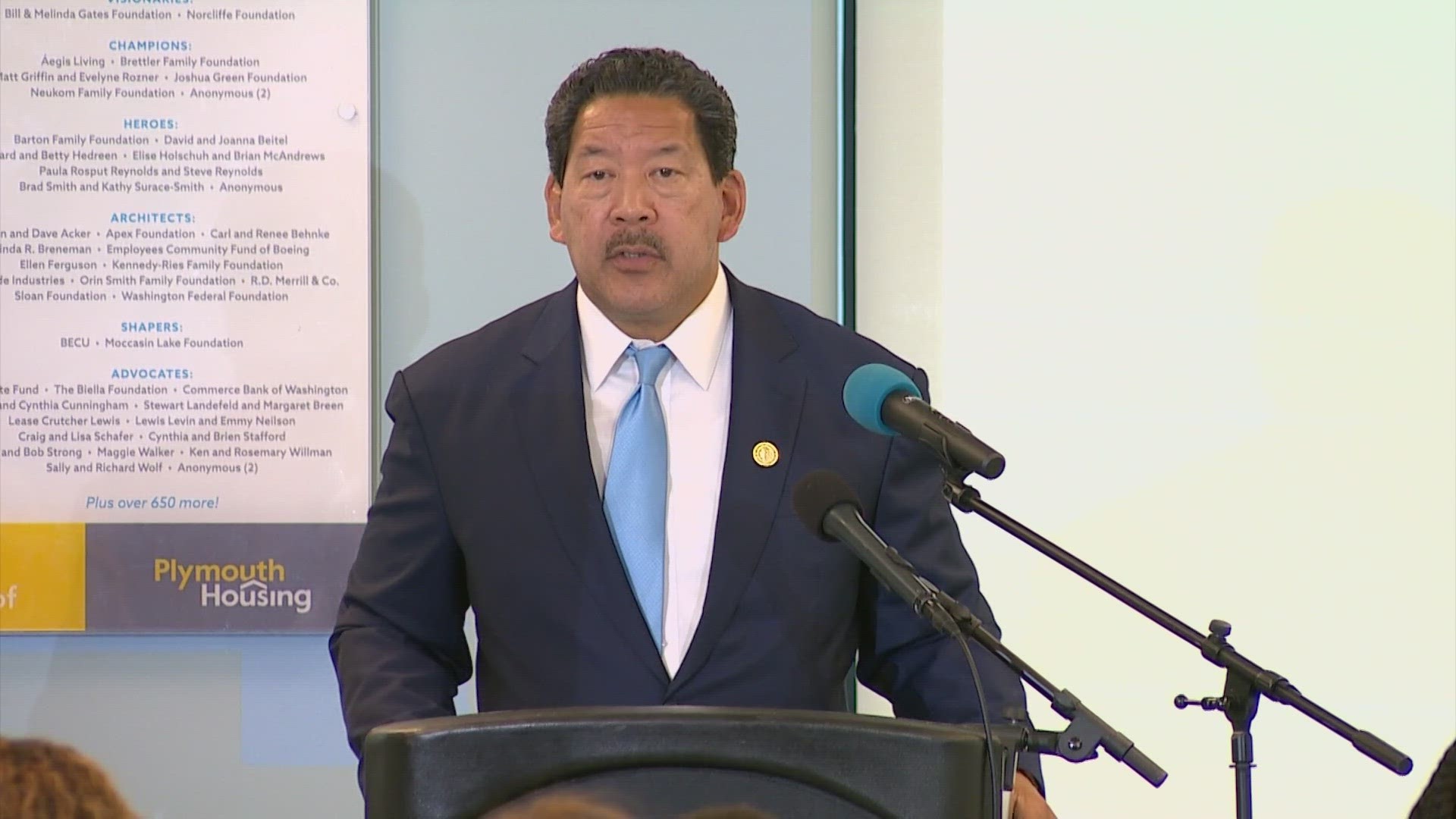SEATTLE — Seattle Mayor Bruce Harrell on Tuesday announced his proposed budget for 2024 which he said focuses on four priorities.
The priorities include sustaining critical services, investing in workers, furthering economic recovering for Seattle, and deepening investment into public safety, public health and alternative response methods.
The 2024 proposed budget increases funding for public safety and affordable housing. There is $845 million allocated to public safety in the 2024 proposed budget, which is $40 million more than the previous year.
The 2024 proposed budget has the most money ever set aside for affordable housing with $334 million proposed. This is a 32% increase compared to the 2023 budget.
“We know that the ultimate answer to solve homelessness and prevent homelessness is housing,” said Harrell. “Housing that meets the needs of families, low-income people, and those with behavioral health and substance use conditions.”
The budget also allocates more than $100 million for the King County Regional Homelessness Authority (KCRHA).
"For a truly effective and comprehensive regional approach to homelessness, the KCRHA must be part of the solution," Harrell said. "We are committed to this, and in partnership with Executive Constantine we will continue working to strengthen the organization’s governance structure, oversight, and accountability systems."
Public safety funding is proposed to go toward several programs.
More than $26 million is proposed to go toward the city’s Community Assisted Response and Engagement (CARE) department. This department was formerly called the Community Safety and Communications Center (CSCC) and heads the new dual dispatch program set to be piloted later this year. The program sends a pair of behavioral health specialists to respond to certain calls instead of police officers.
Millions of dollars will be allocated toward the city’s drug crisis, including $17 million for diversion programs and $7 million for new drug treatment centers.
“We cannot and will not sit idly by while people suffer and die from the effects of drugs and substance use disorder,” said Harrell.
The mayor’s budget also puts money toward police recruitment and technology to help with policing, and funds more police accountability positions.
“We cannot have safety without accountability and community trust,” said Harrell. “Sadly, we have seen that trust fracture through recent events.”
The mayor’s office said $1.8 million from reinvested SPD salary savings, due to a staffing shortage, will go toward piloting new advanced safety technologies to protect neighborhoods impacted by recurring gun violence, collect new evidence to solve crimes, and address the increase in stolen vehicles. The mayor’s office said some of these technologies include license plate readers and gunshot detection systems.
The city council will discuss and amend the budget over the next two months before it goes into effect in January.
The Downtown Seattle Association released a statement, noting that the budgets "reflect priorities and the mayor’s budget proposal is aligned with what Seattle voters believe are the issues the city must address – homelessness, the drug crisis, public safety and downtown’s continued recovery."
The association said it hopes the city council remains focused on setting the right foundation to support Seattle's revitalization.
Seattle Metropolitan Chamber of Commerce President & CEO Rachel Smith expressed support for the proposed budget, writing in a statement that the organization hopes the city council will use "taxpayer dollars in a way that reflects voter priorities and is focused on delivering results."
Smith wrote that after the budget passes, focus should turn toward "managing the city’s impending deficit by getting spending under control, prioritizing existing revenues to meet the city’s highest priorities – including public safety and drug use – and increasing the city’s tax base by making it easier to do business here.”

